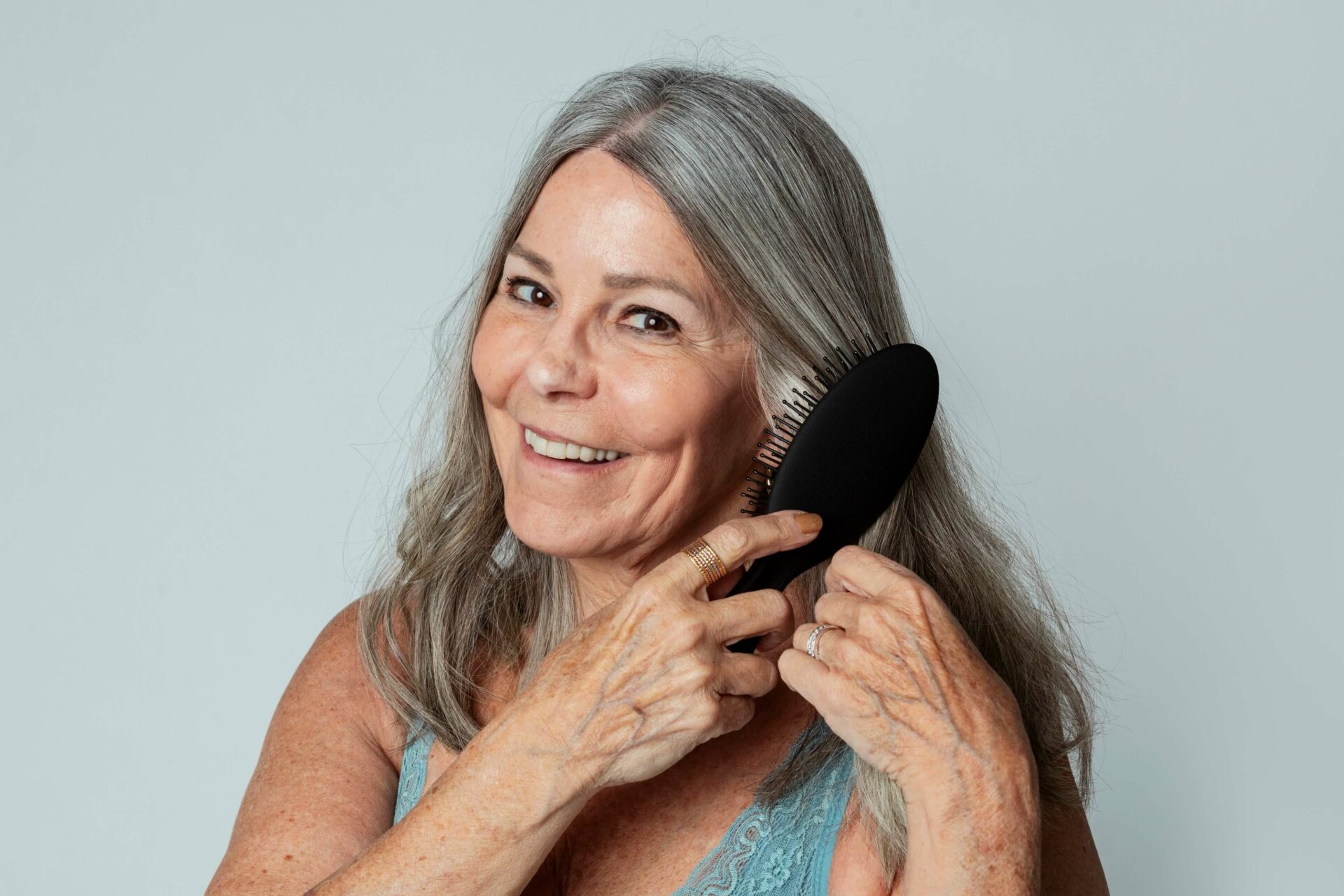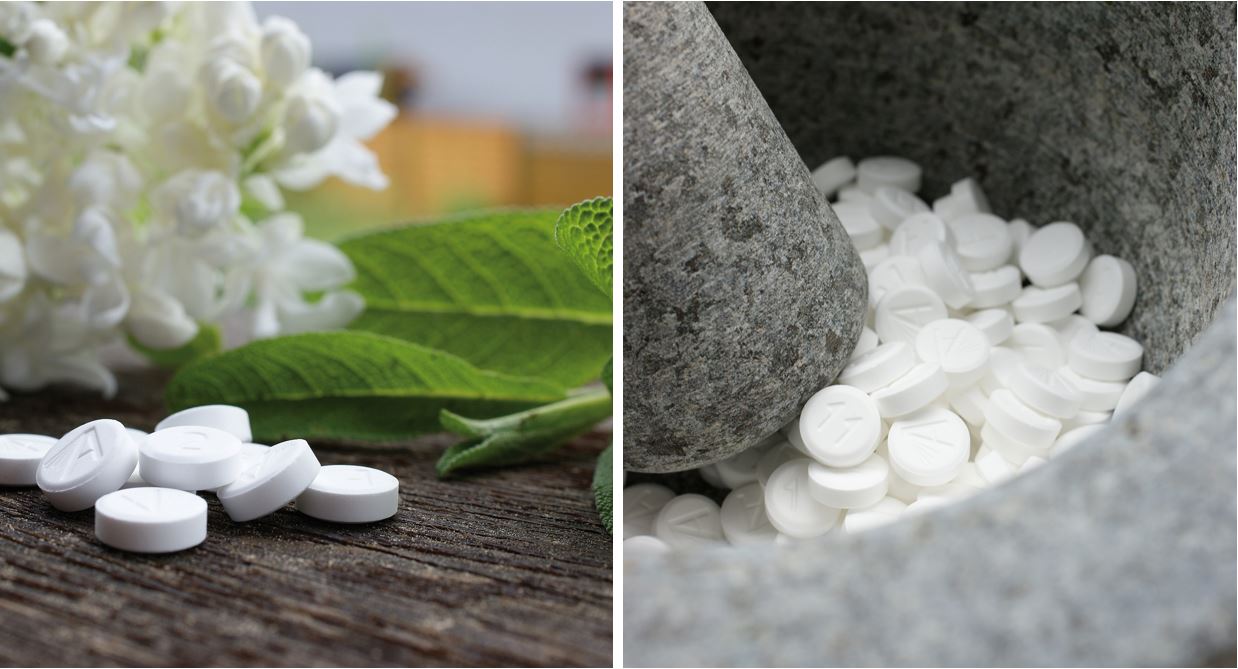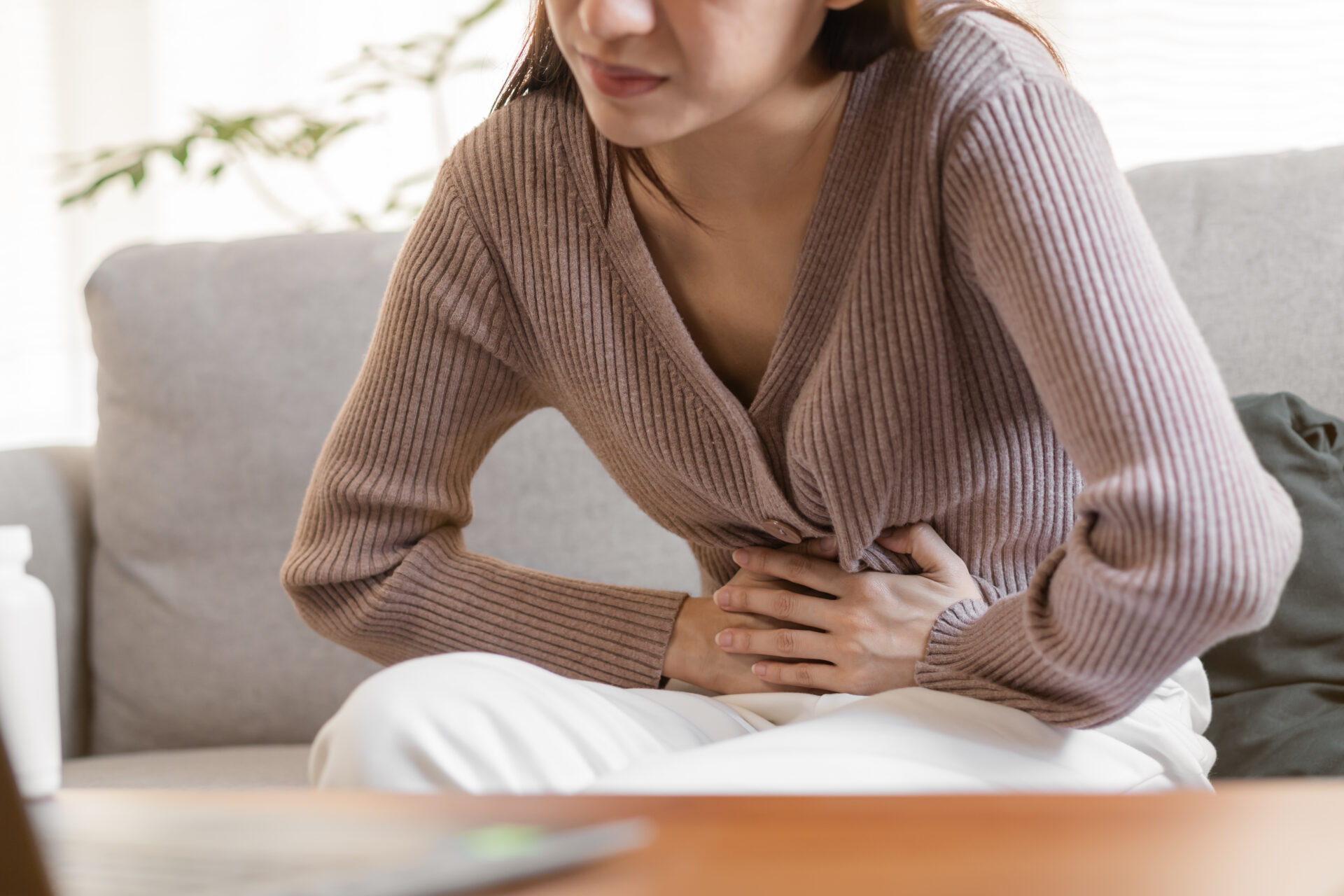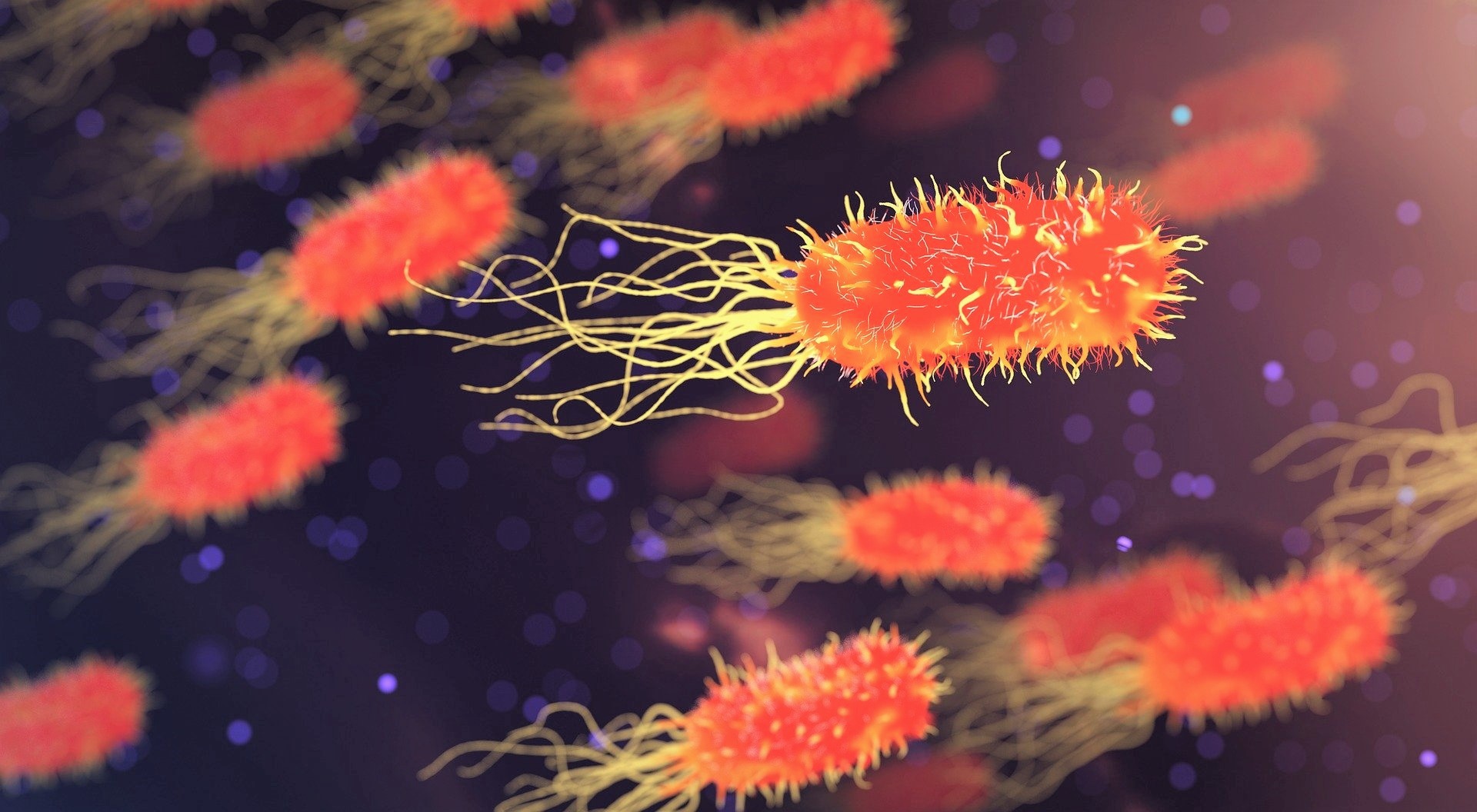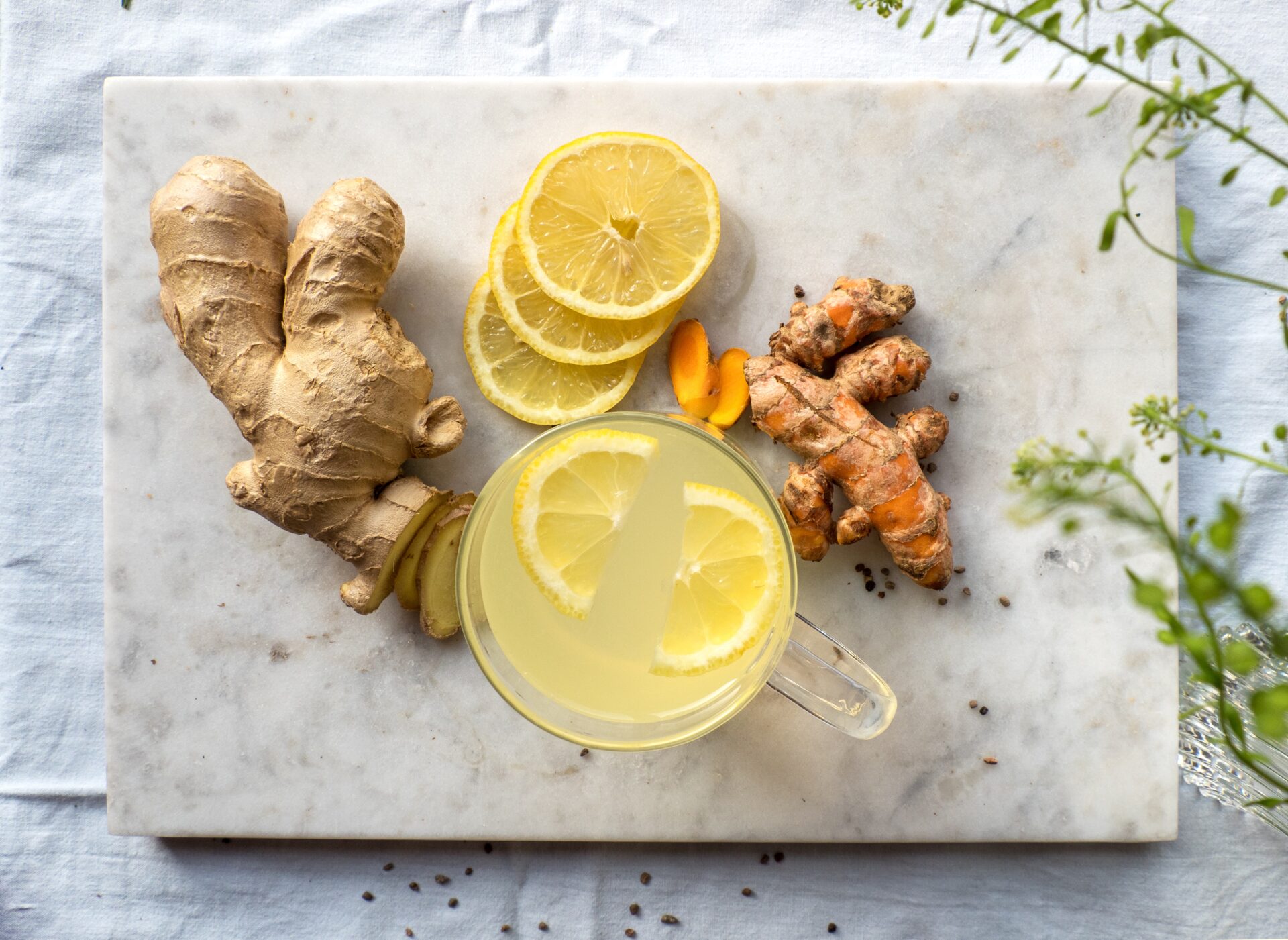
Your individual menopause blend!
With natural methods such as the individual spagyric sprays from Zimply Natural, complaints can be treated and sustainably alleviated. Whether hot flashes, poor sleep or hair loss - your self-configured mixture is tailored exactly to your needs!
The Menopausal symptoms bring a plethora of changes in your body and hair loss can be one of them. One thing is very clear: hair loss is definitely not uncommon! About a third of women struggle with hair loss during menopause. In fact, the trend is on the rise and women are increasingly affected by it. In today's blog post, we'll get to the bottom of why this phenomenon occurs and give you tips on how you can take the health of your hair into your own hands so that your locks remain gorgeous and strong.
Table of contents
- Definition: What do we actually mean by hair loss?
- Not all hair loss is the same
- Causes of hair loss during menopause
- How can I tell if I have hair loss?
- How long does the hair loss during menopause
- Helpful tips for prevention and improvement
- Hormone therapies for hair loss during menopause: What's behind it?
- Herbal remedies as a wonder weapon
- What also helps with hair loss during menopause: home remedies
- FAQ: Questions and answers about hair loss during menopause
Definition: What do we actually mean by hair loss?
Our hair goes through an endless cycle. We lose hair every day, but our hair roots produce replacements in a very short time. These then grow an average of one centimeter per month.
Of course, we should first get to the bottom of what hair loss fundamentally means. We speak of hair loss when more than 100 hairs fall out every day and no longer grow back.
there are basically two different forms of hair loss that we deal with:
- Effluvium (lat. "loss"): More severe hair loss, which, however, does not lead to the development of baldness.
- Alopecia: The hair becomes visibly thinner and/or sparser and areas of bald skin appear
Not all hair loss is the same
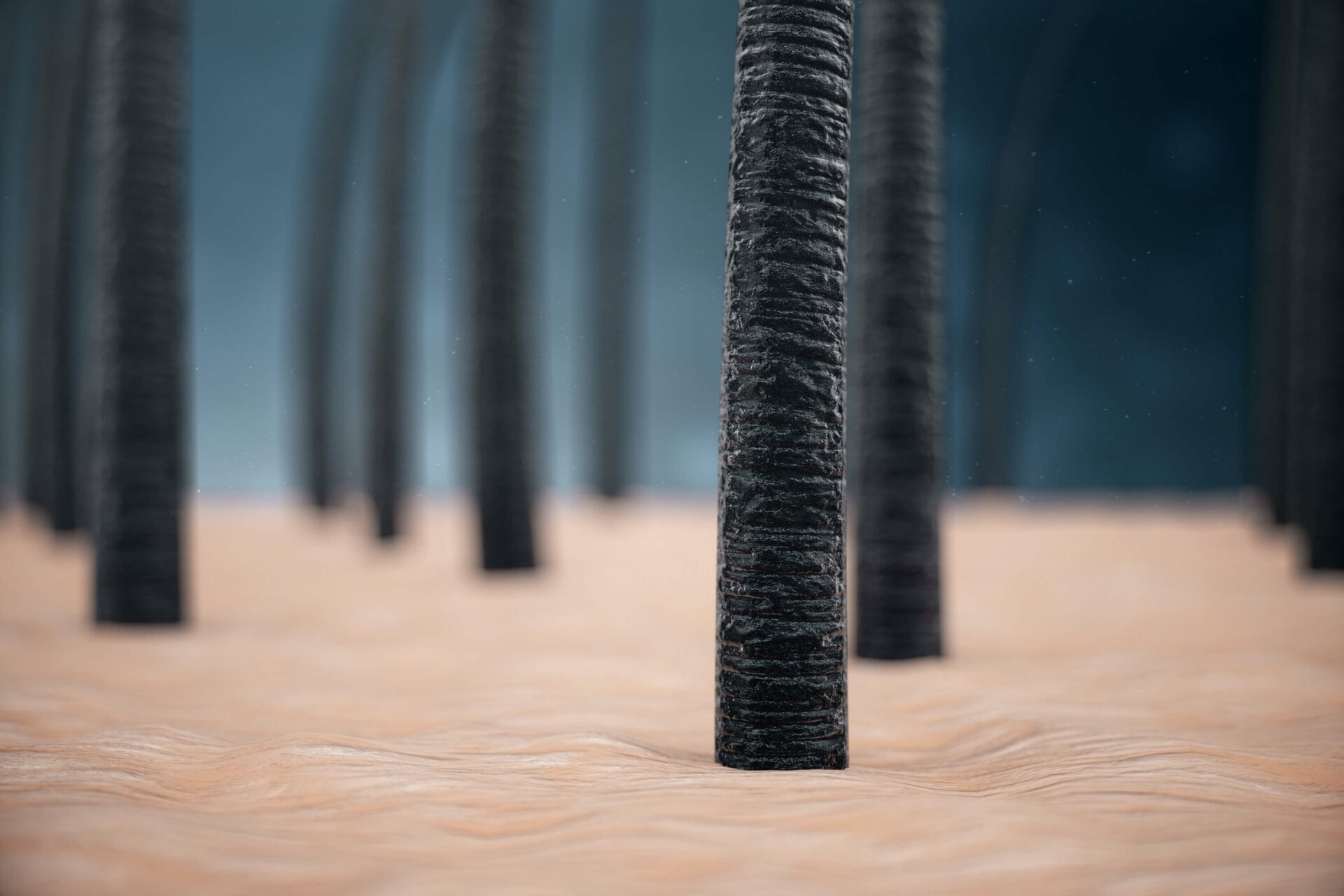
There is a whole spectrum of types of hair loss. We focus on menopause mainly on hormonal hereditary hair loss.
- Hereditary hair loss
- Circular hair loss (inflammatory, usually starts suddenly)
- Diffuse hair loss (thinning of the hair, which, however, proceeds evenly, i.e. without individual bald patches).
- Hair loss due to medication or as a result of chemotherapy
- Hair loss as a symptom of disease
- Hair loss due to external factors, such as mechanical stress and heat
Causes of hair loss during menopause
Causes of hair loss are generally varied: Anti-Stressgenetics, thyroid problems... or hormones. The latter plays a central role especially in the area of menopause, because hair loss here is mostly hormonal. The hormone balance gets out of balance, as the estrogen level drops, which in turn has an influence on our hair growth. The female sex hormones are therefore outnumbered by the male hormones, which has a counterproductive effect on our hair. The result is increased hair loss. However, it should be added that it is quite genetically determined whether the hormonal change of the body results in hair loss, because some hair roots react more sensitively to male hormones compared to others.
Estrogen: an important hormone when it comes to hair loss
The decrease of estrogen in the body is one of the main causes of hair loss during menopause. Estrogen is a hormone that is important for hair growth and hair health. Low estrogen levels can also cause dryness and itching of the scalp, which can cause hair to weaken and fall out.
How can I tell if I have hair loss?
There are several symptoms that indicate hair loss during menopause. Here are some of them:
Thinning of the hair: The hair becomes thinner, especially on the top of the head or in the crown area.
Hair fall out: If you lose more hair than normal while brushing or combing, or find tufts of hair on your pillow or clothes, it may be a sign of hair loss.
Hairline change: A change in the hairline can be a sign of hair loss. In women this often occurs in the form of a widening parting.
Bald spotsBald patches on the scalp can also be a clear sign of hair loss.
Itchy or painful scalp: If you have an itchy or painful scalp, this can also be a sign of hair loss.
It is important to emphasize that it is normal to lose some hair per day. If there is uncertainty, or simply to be on the safe side: feel free to contact a doctor. In menopause, the gynecologist or even a dermatologist is recommended.

How long does hair loss last during menopause?
The duration of hair loss during menopause can vary from woman to woman and depends on several factors, such as individual hormone production, age, health and dietary habits. Unfortunately, there is no exact time window until the hair loss comes to a definite stop. The symptoms can sometimes last for several years. It is assumed that hair loss stops at the end of menopause.
Helpful tips for prevention and improvement
Menopausal hair loss can be challenging, but it doesn't have to be the end of the world. There are many Solutions, from herbal remedies to dietary changes. And remember - you're not alone. Millions of women go through this every year. So don't let hair loss get you down - try to counteract it instead!
It's the handling that makes the difference!
- Strengthen self-confidence: Realize that hair loss is absolutely normal, especially in life phases like menopause: So nothing to be ashamed of! On the contrary, a new phase of life is coming, which also brings new opportunities and adventures. How about a new hairstyle, for example?
Stress Management: Stress can aggravate hair loss. It is important to learn stress management techniques such as yoga, meditation or breathing exercises to lower stress levels.
- Reduce environmental factors: There are numerous external components that promote hair loss, such as the UV irradiation in the summer. Here it makes sense to wear fancy hats or caps more often to relieve the scalp as well as hair. In winter, on the other hand, there is the dry heating air, which puts a spoke in our wheel. This should also be taken into account. At first glance, these aspects can be overwhelming, as they are just part of life. It is best to approach them step by step.
- The right hair careIt is important to care for the hair gently. Shampooing may be a little shorter, as well as the water should be cool when rinsing your hair. This promotes blood circulation in your scalp and closes pores. After washing, it is important to gently blot your hair with a (microfiber) towel or a T-shirt and let it at least pre-dry in the air. When it comes to styling products, the rule is: less is more!
...There are special shampoos made especially for hormone-related hair loss?
These shampoos often contain special ingredients that can strengthen hair, promote hair growth and reduce hair loss. Some of the common ingredients in shampoos for hair loss during menopause are Biotin, Caffeine, Keratin, Collagen and amino acids.
However, shampoos alone are not enough to stop hair loss during menopause. However, they can help strengthen the hair and promote hair growth if used regularly and in combination with other measures. Also, when choosing a shampoo, pay attention to the ingredients and make sure it is suitable for your hair type. For example, women with dry hair should choose a shampoo that contains moisturizing ingredients, while women with oily hair should choose a shampoo that does not irritate the scalp and does not weigh down the hair.
Diet for hair loss - A question of vitamins
Of course plays the Nutrition also play an important role here. A balanced nutrient intake enables beautiful, healthy hair. Important vitamins and minerals that can help are, for example:
- Vitamin C: Collagen production, as well as metabolism are stimulated. Examples of suitable foods are: Strawberries, cabbage, peppers or citrus fruits.
- Biotin (vitamin B7): Here, the metabolism is also boosted, but also supports cell renewal. Salmon, nuts and oilseeds are key sources.
- ZincA true classic next to biotin for beautiful hair. There is enough of it in Brazil nuts, peanuts but also in animal products.
- Iron: Especially important for the energy supply of cells (and thus also the hair roots). Suppliers are for example millet, oats and barley.
It is also important to drink enough water to promote hair growth. Water helps the body flush out toxins and ensures a healthy scalp. In addition, it is advisable to reduce the consumption of sugary foods, processed foods and alcohol, as these can contribute to inflammation in the body. A healthy diet rich in nutrients can help reduce hair loss in menopausal women and promote hair growth.
Hormone therapies for hair loss during menopause: What's behind it?
Hormone therapy is a treatment option for women suffering from hair loss during menopause. This therapy aims to compensate for the hormone deficiency that occurs during menopause.
Hormone therapy (HT) usually consists of a combination of estrogen and progestin. Estrogen is used in hormone therapy to make up for the lack of estrogen in the body that occurs during menopause. Progestin is added to reduce the risk of endometrial cancer, which can be increased when estrogen is used alone.
However, hormone therapy is not suitable for all women. Women with certain pre-existing conditions, such as breast cancer, should not receive hormone therapy. Women who are at higher risk for blood clots or strokes should also be cautious. Side effects of hormone therapy may also occur, such as nausea, bloating, breast tenderness, and headaches.
Overall, hormone therapy can be quite effective for hair loss in menopausal women. However, it should be emphasized that it is still a medical treatment that should be prescribed by a doctor and, consequently, can have both risks and benefits. Often hormonal drugs are adopted carelessly by patients without much knowledge about their effects. It is advisable to first try alternatives that can bring about the same desired effect. Herbal remedies are excellent for this purpose.
Herbal remedies as a wonder weapon
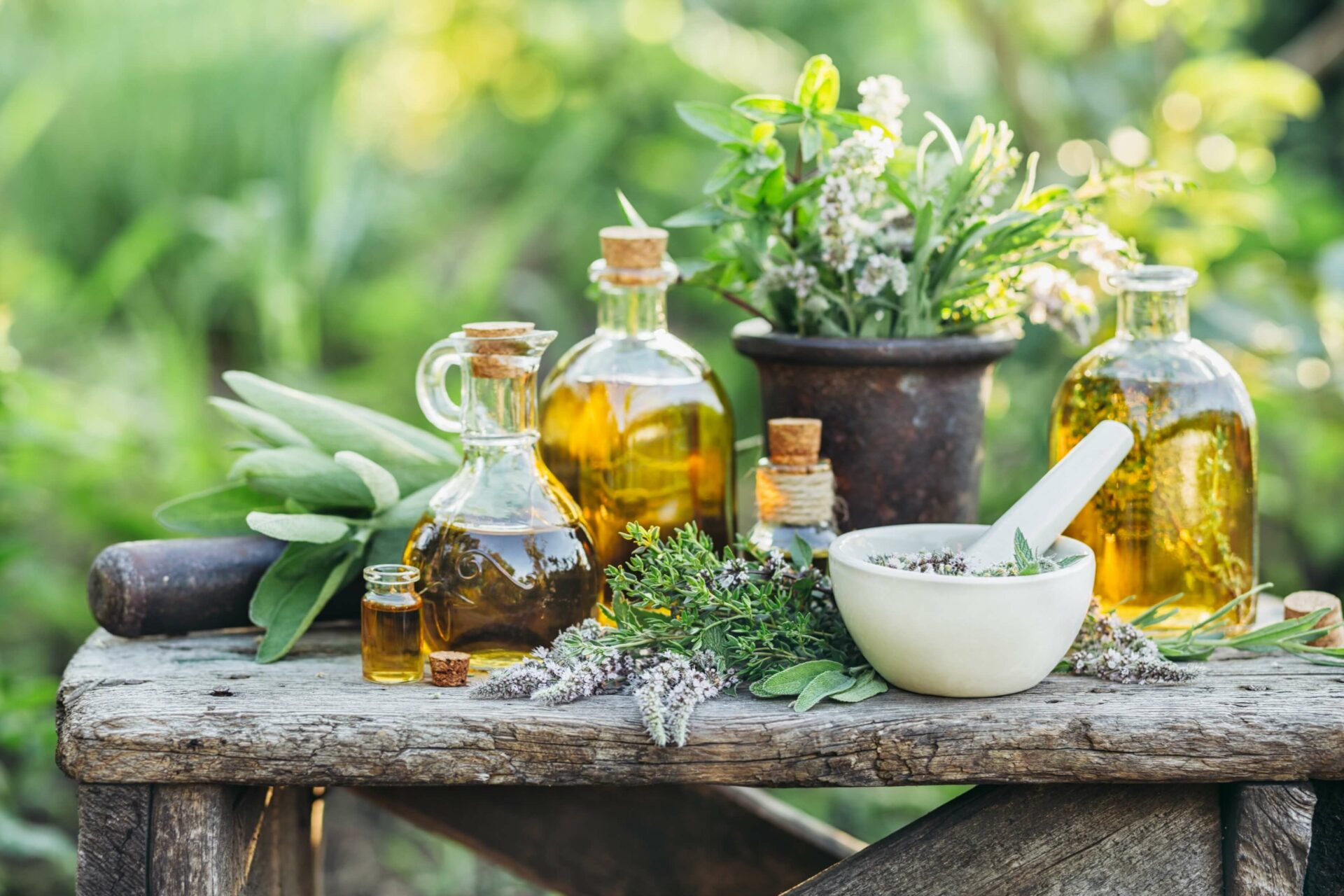
Treat menopausal hair loss naturally
When it comes to hormonal imbalance, natural remedies can always be a useful approach. There are numerous active ingredients that can help improve symptoms in herbal remedies. The best thing is: nowadays, we have quite a few herbal remedies at our disposal to confront menopausal hair loss! Here is a small list of the most common medicinal plants that can help us fight hair loss:
- Nettle: Nettle contains nutrients such as iron, magnesium and calcium, which can promote hair growth and reduce hair loss. It also contains anti-inflammatory and antioxidant properties that can improve scalp health.
- Birch Leaf: Birch leaves can be used for hair loss, as they are rich in flavonoids and saponins, which have an anti-inflammatory effect and can promote hair growth. They also contain vitamin C, potassium, calcium and magnesium, which are important for a healthy scalp and hair.
- Rosemary: Rosemary improves blood circulation in the scalp and stimulates hair growth. It also contains antioxidants that can increase protection against free radicals.
- Millet: Millet is a nutrient-rich grain that is often recommended as a remedy for hair loss. It contains essential nutrients such as iron, B vitamins, magnesium and silica, all of which are important for healthy hair growth and scalp.
However, it is important to note that herbal remedies are not always suitable for everyone and that their effectiveness may vary. It is therefore recommended to speak to a doctor or qualified naturopath before using herbal remedies to treat hair loss. At Zimply Natural, you have the opportunity to make a free appointment with our naturopath, who will provide you with detailed advice and address your needs and desires. With this help, you will be able to create your own customized spray that is specifically designed for you.
What also helps with hair loss during menopause: home remedies
Fortunately, there are many home remedies that menopausal women can try to reduce hair loss and promote hair growth. The advantage is that they are quickly at hand and easy on the wallet.
Massage your scalpA scalp massage can increase blood flow to the scalp and promote hair growth. Use your fingertips to gently massage the scalp. Massage in circular motions, taking care to be gentle so as not to damage the hair.
Natural oilsOlive oil, coconut oil and jojoba oil can help nourish the hair and reduce hair loss. Apply the oil to the scalp and massage it in. Leave it on for at least 30 minutes or overnight and then rinse with a mild shampoo.
Onion juice as a hair mask: Onion juice contains sulfur, which can promote hair growth. To make onion juice, cut an onion into small pieces and squeeze out the juice. Then apply the juice to the scalp and leave it for at least 30 minutes before rinsing with a mild shampoo.
Aloe veraAloe Vera is rich in enzymes that can promote hair growth. Apply aloe vera gel to the scalp and massage it in. Leave it on for at least 30 minutes and then rinse with a mild shampoo.
Green tea: Green tea contains antioxidants that can promote hair growth. Prepare a cup of green tea and let it cool. Apply the tea to the scalp and leave it for at least an hour before rinsing.
FAQ: Questions and answers about hair loss during menopause
What are the reasons for hair loss during menopause?
The main reasons are on the one hand the hormonal change and the resulting imbalance during menopause. On the other hand, the hereditary predisposition plays a major role, because it is actually genetically determined how sensitive how sensitive the hair roots react to the hormone change.
Will the hair recurrence stop?
Hair loss often cannot be stopped, but it can be significantly reduced if the right measures are taken. In most cases, hair loss stabilizes within six months to a year after entering menopause. However, hair growth cannot be fully restored and hair may remain thinner and finer than before menopause.

What can I do about it?
There are many ways to counteract hair loss. It is important to protect the hair from harmful environmental influences. In addition, a gentle hair care and a vitamin-rich, balanced diet is beneficial. In addition, it is always advisable to seek medical help, whether from a dermatologist or gynecologist.
How can medicinal plants help me with this?
For thousands of years, medicinal plants have been considered a miracle cure for health problems. They are gentle on body, mind and soul. With our configurator, you can create an individual spray according to your wishes and needs from over 100 different ingredients that can help you restore your health balance.


